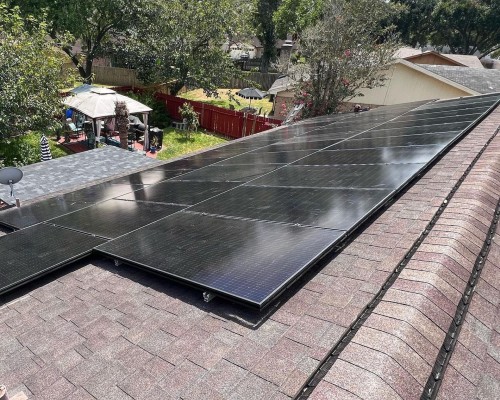Are you considering the installation of solar screens, pondering if they truly have the potential to save you some hard-earned money? We totally get it – those pesky energy bills can be a real buzzkill, leaving you with a sinking feeling every time you peek at the numbers.
The answer is a resounding yes, investing in solar screens can save money in the long run. Solar screens are designed to block a significant portion of the sun’s heat, reducing the need for air conditioning and thus lowering energy costs.
On average, solar screens can lower electricity bills by approximately 10% to 35%, depending on various factors such as the size of the home, local climate, and existing energy efficiency measures.
Does Investing in Solar Screens Worth it? |The Cost-Benefit Analysis
Using solar screens is cost-effective in the following ways:
Installation Costs

The initial investment in solar screens is a crucial aspect to consider. The costs can vary based on factors such as the size of the installation, the type and quality of materials used, window dimensions, and the complexity of the project.
- Solar screens for smaller windows (e.g., 24″ x 24″) can amount to approximately $29 per screen.
- Exterior solar screens typically incur costs ranging from $50 to $150 per window upon installation.
- The pricing of solar screens for windows is approximately $4 to $5 per square foot.
- Considering installation, solar screens can approximately average at $300 per window, with costs spanning from $100 to $500 per window.
- The overall expense of solar screens for various projects can vary from $120 to $480 per door or window.
- The mean cost of renewing a solar screen in two window frames (36″ x 42″) is about $48.
Energy Bill Savings
Another benefit of solar screens lies in their ability to reduce energy consumption, particularly related to cooling systems. By blocking a substantial portion of solar heat, solar screens can help maintain indoor temperatures, leading to reduced reliance on air conditioning during hot seasons.
Studies show that solar screens can result in energy bill savings of up to 10% to 35%, depending on factors like climate, building orientation, and insulation.
Long-Term Financial Implications
While solar screens yield immediate energy bill savings, it is essential to analyze their long-term financial implications. In general, solar screens can last for 10 to 15 years with proper care.
Other Financial Considerations
Beyond energy bill savings, solar screens can offer additional financial benefits. For example, solar screens can enhance the overall value of a property, potentially leading to higher resale value. And, some regions may offer tax incentives or rebates for adopting energy-efficient solutions, further reducing the net cost of installing solar screens.
Environmental Impact

In addition to the financial aspect, it is crucial to consider the positive environmental impact of solar screens.
By reducing energy consumption, solar screens contribute to lower greenhouse gas emissions, promoting sustainable living, and supporting climate change mitigation efforts.
Final Thoughts
In a nutshell, solar screens have proven to be an effective and cost-efficient solution for saving money on energy bills. By reducing solar heat gain and blocking harmful UV rays, these screens can significantly lower the amount of energy required to cool a home during hot summer months.
Additionally, by reducing the strain on air conditioning units, solar screens can extend their lifespan and reduce maintenance costs.
I’m Grayson Watson, your frugal companion and the brain behind this money-saving extravaganza. Strap yourself in, because we’re about to embark on a wallet-friendly adventure like no other. Learn More!

